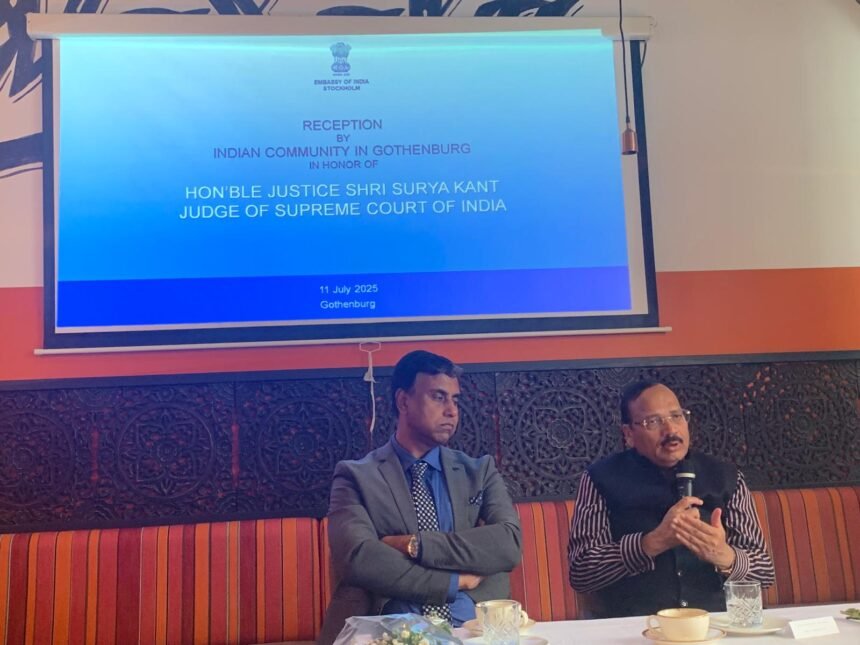India’s commitment to justice does not end at its borders, Supreme Court judge Justice Surya Kant said Friday, pointing out that the country’s courts have in some cases extended the protection of fundamental rights even to non-resident Indians.
Addressing the Indian diaspora in Sweden on Friday, Justice Kant said, “The Indian Constitution, when fully realised, is not merely a set of rules” but “a moral compass” and “envisions a nation where justice is not a privilege of the few, but a right for all.”
The judiciary, he added, “as one of the key constitutional pillars, plays a central role in translating this vision into reality.”
Justice Kant said that “in India, courts have served not only as adjudicators but as moral voices – upholding the rights of the marginalised, protecting freedoms, and sustaining the integrity of democratic processes.”
Justice Kant said that “the judiciary has, through a series of judgments and principled interventions, upheld values like secularism, equality, and dignity, which form the cornerstone of our constitutional identity” and “for the diaspora, this becomes a source of immense reassurance and pride.”
He added, “You may live far from India, but you remain intricately connected to its legal, cultural, and emotional fabric. This is especially true when diaspora members face legal challenges involving property, inheritance, matrimonial issues, or guardianship. The Indian judiciary has increasingly recognised these complexities and has sought to make justice more accessible to non-resident Indians. In some cases, courts have extended the protection of fundamental rights even to those residing abroad, reinforcing the message that India’s commitment to justice does not end at her borders.”
Lauding the diaspora members, he said that “in a globalised world, where identities often blur and borders become less rigid, it is easy to feel unanchored. Yet, the Indian diaspora has shown the world how one can be truly global while remaining authentically Indian. It is a delicate balance, but one that you have mastered with grace and conviction.”
Story continues below this ad
Justice Kant said that “India and Sweden share a commitment to justice, gender equality, and human dignity — values enshrined in both our national narratives. Our legal systems may differ in structure, but not in aspiration. India’s pluralism and Sweden’s social democracy are both grounded in the belief that every individual deserves respect, opportunity, and dignity. These shared values are the bedrock of mutual understanding – and they are the foundation on which relationships between nations, and indeed peoples, must be built.”
The Supreme Court judge also said that “our pursuit of liberty and equality does not exist in a vacuum. It draws strength from who we are – from the values we carry and the culture that shapes us… Our Constitution promises liberty, equality, and fraternity, but the fulfilment of that promise depends on our willingness to confront the contradictions within us. Justice is not just a matter for courts – it is a moral responsibility that must animate our communities and define how we treat one another, both in India and across the world.”








